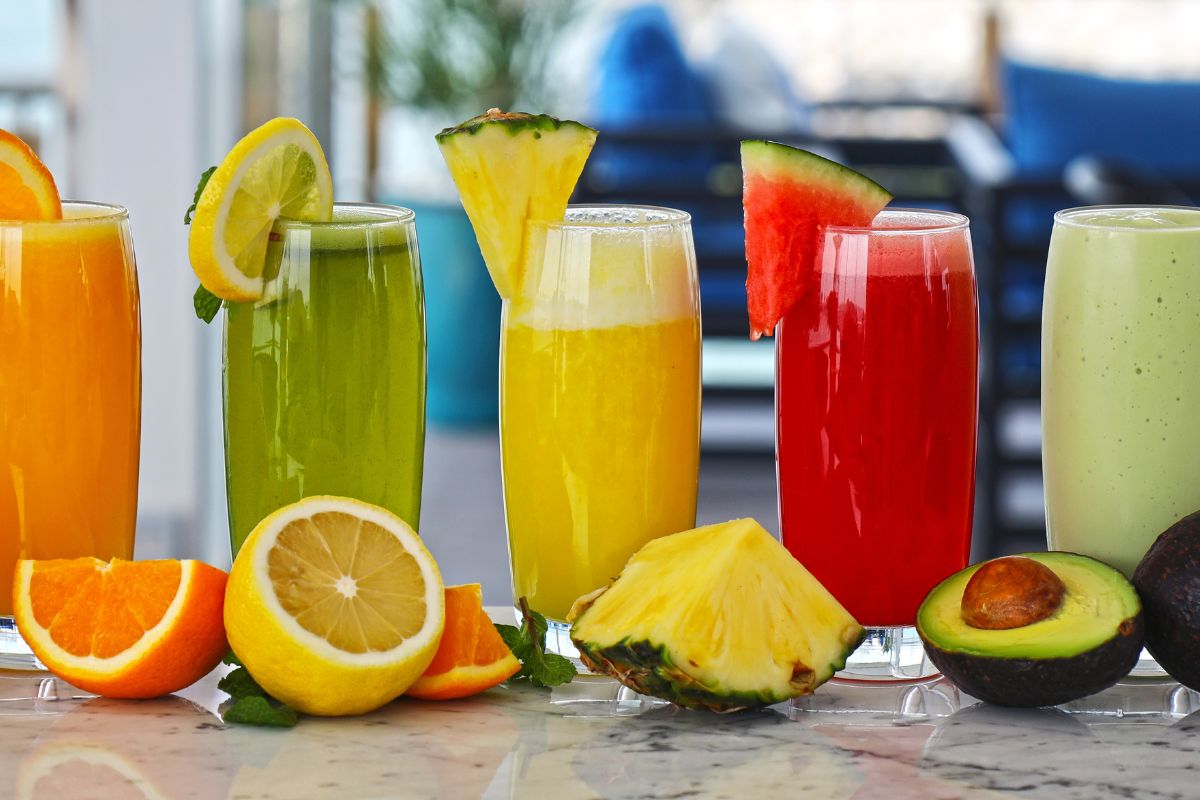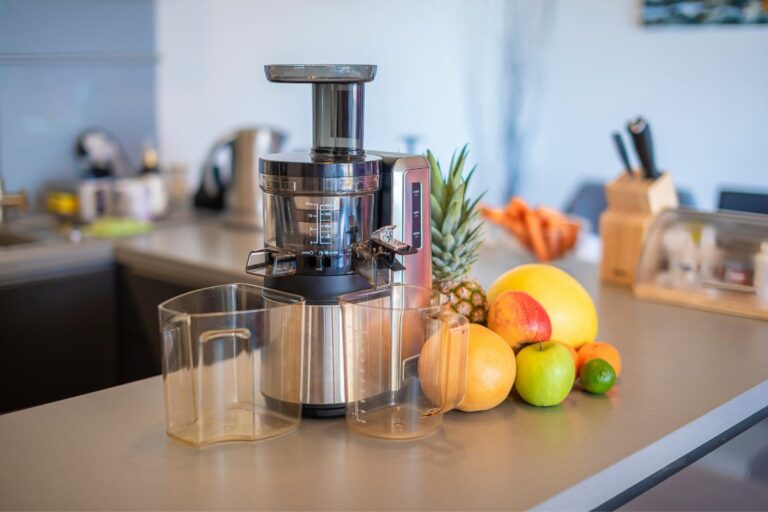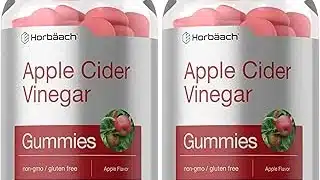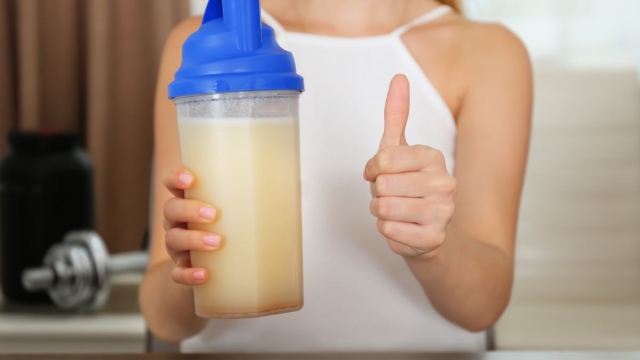Best Books For Juicing Whether You are New or Just Trying to Mix it up
If you’ve tried juicing before, there’s a good chance that, over time, you may have felt your drinks were lacking something and become stale and boring if you’ve decided to stick to it.
This is one reason why some people struggle to stick to it.
The good news is that nutritionists and well-being experts have done the difficult job of compiling delicious recipes and offering you some personal anecdotes and advice on making your juicing more effective.
Read on to find our top picks for juicing books, what each offers you, and some considerations you should consider before committing to juicing.
The Best 8 Juicing Books You Can Get Right Now
1. Juicing For Beginners – Rockridge Press
We start in a place where many new to this lifestyle should start, as it points out why juicing can be effective and why it’s not only about looking good but also how you can enrich your body with essential minerals and vitamins.
Not only this, but this book is quite adaptable, with many lifestyles, and helps you determine your goals and gives you a chance to make these seem possible.
They also have restorative recipes and practical tips on how to make them tastier and healthier.
What We Like
- Not only do you get 100 recipes, but you also get a breakdown of each ingredient to see their properties which could rejuvenate your interest in them.
- While getting pretty simple ingredient lists, it also goes over serving sizes, which is perfect for those getting into juicing.
What We Don’t Like
- A minor complaint, but the book doesn’t consider different kitchen setups, as it assumes you have everything to get started. You may have to invest in certain utensils for preparation to get the best results.
2. The Complete Juicing Recipe Book
If you want to move beyond something that gives you the basics, this companion book is perfect for giving you more recipes to use, so you can hit the ground running and get the natural energy you’ve been looking for.
You have recipes for most scenarios, so if you’ve just finished a workout, are having an afternoon slump, or are tackling a cold, you’ll find a recipe to suit you.
It goes beyond this to give you ways to boost your cleanse and even your brain health.
What We Like
- This book advises choosing the right juicer and the best prepping methods to make you a pro at juicing.
- The book doesn’t get too busy explaining the benefits of juicing, so you can get started and get straight to finding your tasty recipe.
What We Don’t Like
- Some of the recipes in the book are a bit extensive, and those who aren’t too familiar with these processes may want a shorter list as it can be pretty time-consuming to prep and mix all the ingredients up.
3. Modern Juicing – Mimi Kirk
For those looking for a contemporary and fresh guide to juicing, this book focuses on the recipes and alerts you to things like taste, cost, and health. This can be overlooked in these books, so it’s refreshing to see it here.
With these recipes, you almost go on a journey to how these juices were thought up, as the process of creating these vibrant varieties can be very rewarding and can give the reader that wow moment as you go through the contents.
What We Like
- The design of this book is very enlivening, as each section has interesting and vibrant serving pictures that can get anyone with a hint of doubt to try at least one of these recipes.
- You also have sections on juices for kids, as you get other sections on how you can substitute non-plant-based ingredients, so this feels very inclusive.
What We Don’t Like
- Some of the recipes in this book may be too simple for some people, as they might want to do different things with common juice staples.
4. The Juiceman’s Power Of Juicing – Jay Kordich
You have a book that interests the lifestyle itself, as some may doubt that it’s easy to incorporate these recipes into a day, but this book dispels that myth and reassures you that this process doesn’t have to be complicated.
With exciting mixes like carrot-cantaloupe coolers, grape-pineapple punch, and pear-apple cocktails, you have mouth-watering varieties that will spark your creative side and give you the confidence to express yourself.
What We Like
- The name brings with it some authority, as the author has been teaching the wellness of juicing for over 40 years, so you know all the health information is better relevant to the needs of each recipe.
- While this may seem like a novice guide, there are tips and tricks here that even some avid juicers may not know, increasing its reread value.
What We Don’t Like
- While this advice is helpful for many people, there is a focus on this rather than the recipes, as this may be a bit lacking compared to exclusively recipe books.
5. The Juicing Bible – Pat Crocker
Considered a market leader, this book has 350 recipes, as it uses ingredients that include vegetable smoothies, teas, tonics, cleansers, frozen treats, digestives, and even tea and coffee substitutes.
This is the perfect guide for those who want to get into juicing and learn more about the inner workings of how ingredients complement each other and how best to store them.
We also see coverage of 80 common health concerns and how best to combat them.
What We Like
- We love how each condition in the book not only gives you the best recipe but also tells you which foods and ingredients to cut out, making a very useful companion lifestyle guide.
- This book has a lot of charm and personality packed into it, so if you’re apprehensive about getting into these recipes, you can see just how vibrant and beneficial starting can be.
What We Don’t Like
- A small issue with some recipes, as some could be considered uncommon foods, so you may have to search for specific ingredients in specialty areas to make, which can be a pain as it can be hard to know where to start looking.
6. The New Vegan Juicing Book – Susan Wilkins
If you’re worried about these other guides not having vegan methods of producing their recipes, this one is perfect, and you still find all the benefits you can get with traditional juicing books.
With this, you can find some refreshing recipes that are dazzling to look at.
One of the issues some of these guides is on the availability of certain ingredients, but with this book, you’ll find ways to make the process easier and affordable, as many know on this diet that some ingredients can be on the pricey side.
What We Like
- If you are new to the vegan lifestyle, this guide is ideal for those who are apprehensive about trying out some fruits and veggies so that you can find your new favorite meal staples here.
- This book makes full use of your ingredients and gives you a good variety of flavors and textures, so you get a lot of mileage out of this.
What We Don’t Like
- Being some over 70 recipes, this feels slightly lacking when comparing it to other books in this list, as you want some variation from these recipe guides.
7. Crazy Sexy Juice – Kris Carr
A book with something different about it, you have bestselling author Kris Carr who covers almost everything you would ever need to know to ensure you get off to a good start and keep the routine up, as difficult as this can be.
Not only this, but you get recipes described by how they are to the taste, and you get a handy guide on picking the best kitchen equipment.
For those on the go, there is also a section on the best way to fit this into your busy day and the best way to store it.
What We Like
- One thing that a book should do is make a lifestyle or diet seem appealing, and this does it very well, as it makes the process fun and encourages a level of experimentation, so you aren’t too anxious if you make a mistake.
- This book also makes the learning process less daunting, so you get an overview of each ingredient and how it can contribute to a continued improvement of your well-being.
What We Don’t Like
- One small issue is that the printing is a bit small, so those with impaired eyesight may struggle to pick up the words. These reference books are made to be picked up fast, which could be a problem for some.
8. The Reboot With Joe Juice Diet – Joe Cross
This is quite a personal development type of book, as it shows Joe, who has become a strong advocate for the benefits of juicing, was sometimes different, and you have something that results from a desire to lose weight and improve overall health.
With this inspiring journey, you also get the tools and advice you need to get started, and if you need more motivation, Joe also has encouraging words to keep you on track. Here you can find various diet plans for a better you.
What We Like
- Many readers have noted how they have made significant steps towards their weight loss goals, which is a critical component of this book as Joe shows how easy this can be to achieve.
- If you only want to juice for the short to medium term, this book can help you reboot without sticking to juicing long after you don’t see the need to.
What We Don’t Like
- Some of these types of juicing aren’t for all readers, as some may want to build up muscle, which this guidance works against.
- Those who are looking for a break in between juicing may be prone to overeating, as this is apparent if the user is going for a multi-day fast, which isn’t suited to everyone.
Some Considerations
With these top picks, you have enough to get started, and if you’re new to this lifestyle, it can be challenging to know if this will be effective for your goals or not.
You might have tried this before and found you have given up a few days in.
Whatever your stage of juicing, there are a few things you may want to think over, as they could determine how successful you are.
Getting The Right Balance
While juicing can seem like a convenient meal replacement, it’s essential to know that this isn’t the case, as skipping out on meals means you miss out on key nutrients like protein and fiber, which can be harmful if you already have deficiencies with some of these.
You can eat on a juicing as long as you avoid highly processed foods and stick to the main food groups, which include protein, grains, starches, nuts, seeds, fats, and oils. There are ways to get some of these into your juice recipes.
Mix It Up
If you find you don’t like the flavors you try or are getting bored with the process, it’s a good chance you’ll give up before you see any noticeable results, as it is said you can do this up to ten days, which is often where you can feel the detox has happened.
For the best results, you want to use a range of ingredients, with spices like ginger and turmeric, that can be health-boosting while giving you a sharp burst of flavor.
Be sure to try out sweeter and more citrusy fruit to get a refreshing taste.
Recipes Over Advice
Some of these books focus on recipes more than practical tips and advice, so the main thing to consider here is which one you need the most.
While not all of the examples above will be perfect, it’s a good idea to look at each to see which one appeals to you.
This may mean you decide to sacrifice some recipes to get more health information, as you may have specific goals and want to ensure your ingredients are the best for your purpose.
This is very useful who are starting and need to know what equipment they need fully.
Explore Also:
Creativehouseblog
Dietsheriff
Gigasecurehome
Frequently Asked Questions
Should I Start Juicing?
For many, this process can be very effective for boosting the immune system, aiding digestion, helping with weight loss, and can reduce the risk of cancer.
However, it has yet to be shown by any solid research that juicing isn’t healthier than consuming the ingredients in solid form.
For the goal of weight loss, while it may be a great short-term solution, it may be detrimental to this as the calorie restriction can slow down your metabolism, so you’ll find at some point that your weight doesn’t lower as much as you’d like.
In fact, as your body is its own detoxification system, going through this process isn’t necessary.
In some cases, overconsumption can cause negative side effects, such as fatigue, nausea, and dizziness.
Is Juicing Easy?
If you think about the calories that you have to cut out, this can leave a hole, which can make it more difficult to stick to this diet.
This is why many people start these after the holidays, when they may have overconsumed food that is causing issues with their gut, so the key here is to mark and stick to the days as best as you can.
What Are The Best Foods For Juicing?
There isn’t really a right or wrong answer, as long as your ingredients have got a good amount of nutrients in them, as vegetables like beets, carrots, celery, spinach, kale, cucumber, Swiss chard, and spices like ginger are good options.
As for fruit, these can depend on your preferences, but it can also be a chance for you to try something new, as anything like cherries, watermelon, pomegranates, lemons, pineapple, and some Valencia oranges can offer you a remarkable flavor that can boost your motivation.
Can I Fast With Juice?
Fasting is usually a part of this process, as many people consume a few glasses of this a day and go for a fasting method like the 16:8 or the 5:2 diet, which are just ways to adjust your eating windows to make your routine more suitable.
Some of these methods are less imposing, as some are only done over 2-3 days, where someone can eat normally during the other days.
Finding which one works for you depends on your health, calorie intake, metabolism, and what your eating habits are like.
Before you start juicing, it’s a good idea to check with a practitioner to see if you are at risk for any complications that may come from this lifestyle.
FAQ 1: Q: Is juicing a sustainable and long-term solution for better health?
A: Juicing can be a valuable component of a healthy lifestyle, providing essential nutrients in an easily digestible form. While it’s not recommended to rely solely on juices for all your nutritional needs, incorporating fresh juices into your diet can be a sustainable and long-term strategy for improved health when balanced with whole foods and a well-rounded diet.
FAQ 2: Q: What are the benefits of using juicing books and recipes?
A: Juicing books and recipes offer a wealth of benefits. They provide you with a wide variety of juice combinations, ensuring you never get bored. They also guide you on specific health goals and help you avoid common pitfalls, making your juicing experience more effective and enjoyable. Plus, they often contain personal anecdotes and expert tips for added motivation and knowledge.
FAQ 3: Q: Are there any considerations before starting a juicing regimen?
A: Yes, there are a few important considerations before committing to juicing. First, consult with a healthcare professional, especially if you have any underlying health conditions or are on medications. Second, ensure you’re using fresh, high-quality produce and practice good hygiene when juicing. Lastly, remember that juicing should complement your diet, not replace it entirely. It’s essential to maintain a balanced and varied intake of nutrients from whole foods for optimal health.















